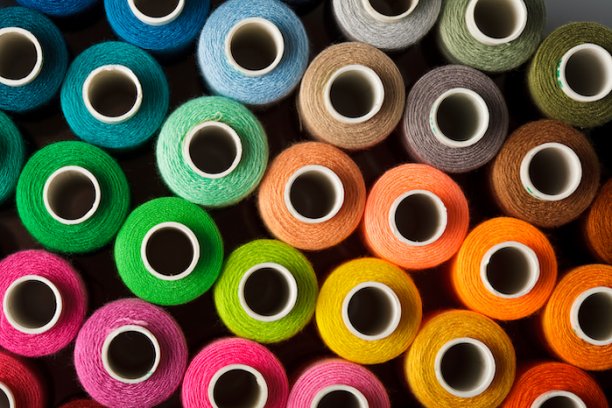
Cologne hybrid showcase for cellulose fibre innovations
The conference will focus on markets, technologies and sustainability

10th January 2020
Innovation in Textiles
|
Cologne
jpg.jpg)
© LEVACO Chemicals GmbH
According to the nova institute, the global cellulose fibre market is one of the fastest-growing markets, with an annual growth rate of almost 10%. “Experts estimate that sales will exceed 50 billion dollars in 2025. The increasing demand for environmentally friendly and biodegradable fibres for textiles, hygiene products and plastic substitutes in packaging are the most important drivers for the growth. In this context, political regulations, which aim to drastically reduce the discharge of microplastics into the environment, play an important role,” the organisation says.
“In order to be able to meet the constantly growing demand, large investments in wood-based biorefineries are currently undertaken. This is particularly visible in Asia and Northern Europe, where other wood chemistry products are manufactured in addition to cellulose fibres. This ensures that all components of the wood are used. Increasingly, alternative raw material sources are being used as well, such as used textiles, waste wood, agricultural industry residues and wastewater, which often still contains cellulose. Utilising such alternative sources, the ecological footprint of cellulose fibres can be even further reduced.”
Michael Carus, Managing Director of nova-Institute in Hürth near Cologne, was astonished by the fact that this promising area did not have its own conference: “Every other area that is growing fast, has a huge number of new technologies and constantly attracts new players, usually has its own global conference. We need to fill this gap quickly. Thus, at the beginning of 2019, the idea was born to hold the 1st International Conference on Cellulose Fibres in Cologne. We are looking forward to the premiere on 11 and 12 February 2020, which will bring together the world's most important producers and players.”
With 30 presentations, the programme covers a wide range of topics such as markets and politics, sustainability and circularity, new production technologies, alternative raw materials and applications in the fields of textiles, hygiene products, biocomposites and food (nanocellulose). The focus is also s on applications in which plastics can be replaced by cellulose fibres.
Leading companies such as Lenzing (Austria), Sateri (China), Aditya Birla (India), Södra (Sweden), Metsä Fibre (Finland) and Kelheim Fibres (Germany) will present their latest technological developments, new properties and applications. Life cycle assessments and concepts for the extraction of cellulose fibres from alternative raw material sources will also be presented, whereby the fibres can be reintegrated into the circular economy to be used again. In this context, auxiliary materials (Bozzetto (Italy)) and equipment (Levaco Chemicals (Germany)) are also included. The industry’s market leaders will be joined by various start-ups and leading research institutes from Denmark, Germany, Finland, the Netherlands, Sweden and the USA.
Sustainability will be highlighted by two sessions and a panel discussion, in which users, certifiers and environmental groups will participate. Environmental activists from Canopy (Canada) have set themselves the goal of developing corporate solutions that protect the last natural forests - 750 companies have already joined this goal. Together with ISCC (International Sustainability & Carbon Certification, Germany), Textile Exchange (Germany/USA) and companies like Esprit (Germany/Hong Kong), promise exciting discussion.
An additional thematic focus is the biodegradability of cellulose fibres. This topic is of particular importance because microfibres inevitably enter the wastewater during the washing of textiles. Additionally, various disposable plastic products that can be partially substituted by cellulose fibres will be banned from 2021. There will be interesting scientific presentations on these topics from the Niederrhein University of Applied Sciences (Germany) and the Scripps Institution of Oceanography, UC San Diego (USA), among others.
Sateri (China), Lenzing (Austria) and Bozzetto (Italy) will support the conference as gold sponsors. In addition, LEVACO Chemical (Germany) will be involved as a silver sponsor and NC Partnering (Finland) and Stora Enso (Finland/Sweden) as bronze sponsors.
Premium partner of the conference is the environmental activist group Canopy (Canada). Other well-known partners of the conference are BCNP Consultants (Germany), C.A.R.M.E.N. (Germany), CLIB (Germany), the Institute of Textile Technology (ITA) of RWTH Aachen University (Germany), PEFC International (Switzerland/Germany), Textile Exchange (Germany/USA), The Fibre Year Consulting (Switzerland) and the World Bioeconomy Forum (Finland).
Nova-Institute expects 200 to 300 participants and 30 exhibitors from all over the world. In addition, a range of different industries such as textiles, hygiene and packaging will participate in the conference.

Business intelligence for the fibre, textiles and apparel industries: technologies, innovations, markets, investments, trade policy, sourcing, strategy...
Find out more